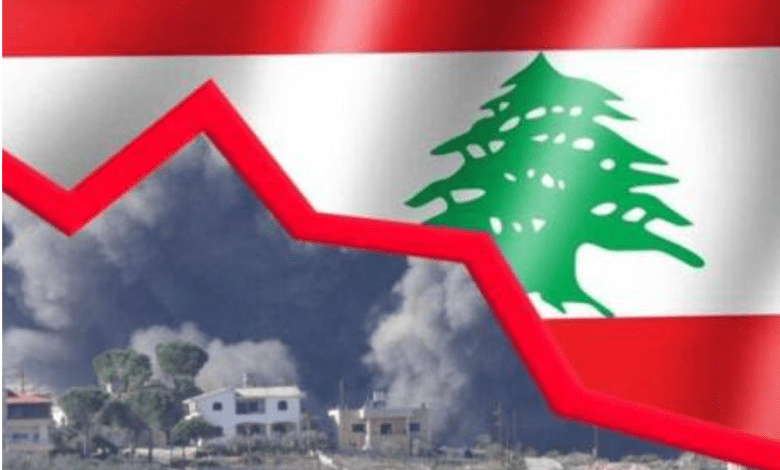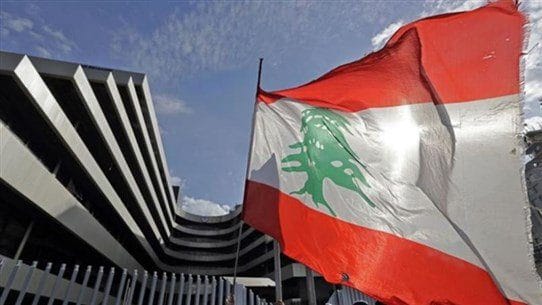انتعاش اقتصادي هش على حساب المهجّرين ومعاناة الناس
تتصاعد وتيرة العدوان الإسرائيلي على لبنان يوما بعد يوم، محولا سكان الجنوب اللبناني والضاحية الجنوبية والبقاع من مواطنين آمنين إلى مهجرين في المناطق اللبنانية التي تعد آمنة إلى حين، من هذا العدوان الهمجي. وقد تهجر أكثر من مليون شخص، أي ما يعادل ربع سكان لبنان، من منازلهم في المناطق المتضررة، بحثًا عن بيئة آمنة هربًا من جحيم الحرب التدميرية والمخاطر التي تؤثر في حياتهم اليومية.
هذا النزوح أدى إلى ضغط كبير على المناطق التي استقبلت المهجرين، مما أثر في الاقتصاد اللبناني بشكل مباشر، فالبلاد اليوم تشهد ضغطًا غير مسبوق مع تزايد أعداد النازحين، ما يثقل كاهل المجتمعات المضيفة سواء في المنازل أو مراكز الإيواء، وذلك في ظل انتشار الفقر، حيث يرزح نحو 70% من اللبنانيين تحت خط الفقر، بحسب تقارير البنك الدولي.
المدير الإقليمي للشرق الأوسط وشمال أفريقيا في المنظمة الدولية للهجرة التابعة للأمم المتحدة، عثمان البلبيسي، حذر من أن «نزوح مئات الآلاف من الأشخاص في لبنان كارثي»، مشيرًا إلى أن الدعم الدولي «لا يتناسب مع الاحتياجات”.
لكن هل يمكن لهذا التهجير الكبير أن يكون له تأثير إيجابي بالنشاط التجاري في المجتمعات المضيفة؟ ليس من باب التفاؤل أو التشاؤم أو بث آمال فارغة وسط هذه الحرب الهمجية، بل من واقع نعيشه. فقد شهدت بعض المهن والقطاعات نشاطًا غير مسبوق، مستفيدة من الطلب المتزايد على السلع والخدمات في تلك المناطق التي استقبلت النازحين.
وتشمل هذه القطاعات تجارة المواد الغذائية، وتأجير الشقق المفروشة وغير المفروشة، وقطاع المقاهي، إلى جانب تزايد الطلب على فرش ووسائد النوم وملحقاتها، مع سعي المهجرين المتفائلين بعودة سريعة إلى مناطقهم، إلى تأمين حاجاتهم الأساسية وسط التحديات التي تواجههم. لكن المهجرين يملكون قدرة شرائية محدودة، ويركزون على قائمة الأولويات مثل الغذاء والمياه النظيفة والرعاية الطبية، وهو ما يعكسه «مثلث ماسلو». في المقابل، هناك قطاعات أخرى، مثل الإلكترونيات والسيارات، التي تعد من الكماليات وتأثرت بشدة، إذ انخفضت نسبة البيع إلى مستويات متدنية جدًا.
وفي جولة أجرتها صحيفة «الديار» على بعض المحال في مناطق التهجير، أكد لنا أحد الموظفين في محل لبيع المستلزمات المنزلية أن «السوق مزدهر»، في إشارة إلى الطلب الكثيف على المفروشات، وبخاصة فرش النوم. وقال: «قبلاً لم يكن هناك طلب على هذه السلع، أما اليوم ومع بداية الحرب على لبنان ونزوح الأعداد الكبيرة من سكان الجنوب والبقاع والضاحية الجنوبية، تجارة فرش الإسفنج لم تتوقف وزاد الطلب عليها”.
وشهدت المناطق التي استقبلت المهجرين زيادة في الطلب على السلع والخدمات الأساسية. لكن تجار الحروب والأزمات لم يتوانوا عن استغلال الفرصة، رافعين الأسعار لزيادة أرباحهم على حساب معاناة الآخرين. في المقابل، نجد البعض ممن يشعرون بالأزمة التي يعيشها المهجرون الهاربون من حرب النار ليجدوا أنفسهم بمواجهة حرب الأسعار الملتهبة. مصدر مطلع على أعمال لجنة الطوارئ الحكومية أكد أن «الأجهزة الأمنية كافة تعمل على منع عمليات الاحتكار ومراقبة الأسعار وضبط الحدود”.
فالأسعار في هذه المناطق شهدت ارتفاعا جنونيا، حيث أكد أحد المستهلكين، وهو من سكان منطقة أنطلياس، أن «أسعار السلع ارتفعت بين 20 و30 في المئة، ونمط حياتنا تغير. فالراتب لا يكفي لسد حاجاتنا اليومية، وتكاليف المعيشة أصبحت فوق طاقتنا». وشهد الأمن الغذائي تضخمًا هائلًا في الأسعار وصل إلى مستويات قياسية. ومع أن التضخم قد تراجع مؤخراً، إلا أن الأسعار ما زالت مرتفعة، مما يرفع نسبة الفقر في البلاد لتصل إلى حوالى 44% من السكان.
كما شهدت إيجارات الشقق السكنية ارتفاعًا كبيرًا تراوح بين ضعفين إلى خمسة أضعاف. وهذا زاد من الأعباء المالية على المهجرين، حيث أدت الحرب إلى توقف أعمال عدد كبير من اللبنانيين، سواء النازحين أو غير النازحين. ومن كان قادرًا على تأمين مصروف يومه أصبح عاجزًا اليوم. ولم يؤثر النزوح في الاقتصاد المحلي فقط، بل أدى أيضًا إلى تعطل القوى العاملة، حيث أجبر العديد من الأشخاص على ترك وظائفهم أو أعمالهم، مما زاد من معدلات البطالة، التي كانت مرتفعة أصلًا قبل العدوان. علي، أحد النازحين من الضاحية الجنوبية، روى لنا معاناته في إيجاد شقة تتناسب مع وضعه المالي الجديد. فهو اليوم فقد عمله ويعمل على ترتيب حياته بما يتناسب مع ما ادخره من أموال لحين عودته إلى منزله.
منظمة العمل الدولية أعلنت عن توسيع أنشطة برنامج التوظيف المكثف والبنى التحتية في لبنان (EIIP)، بتمويل من ألمانيا والمنظمة، استجابة للأزمة المتفاقمة في البلاد. يهدف البرنامج إلى تحسين الظروف المعيشية في الملاجئ الجماعية التي تستضيف المهجرين كالمرافق الأساسية مثل المطابخ والصرف الصحي، مع توفير «فرص عمل مقابل النقد» في إعادة تأهيل مبانٍ مستخدمة كمراكز للإيواء.
المحلل المالي والاقتصادي الدكتور بلال علامة أكد أن «الحروب غالبًا ما تسهم في ازدهار الأنشطة غير الرسمية، فنلاحظ انتشارًا كبيرًا للبائعين في الطرقات ولأشخاص يبيعون بضائع بطرق غير خاضعة للتنظيم أو الضوابط القانونية. وهذه الأنشطة لا تخضع عادة للضرائب أو التصاريح الرسمية، مما يجعلها غير مفيدة للاقتصاد الرسمي”.
هذا العام يُعد من أصعب الأعوام على اللبنانيين، فالاقتصاد شهد نموًا مؤقتًا على حساب معاناة الناس. وهذا النشاط الاقتصادي المستجد جراء أزمة النزوح لا يعد ازدهارًا للقطاعات. فقطاع الألبسة والمفروشات، على سبيل المثال، بقي على حاله من دون تغيير، وهو يعاني أصلًا من ركود كبير. واليوم، نظرًا إلى الظروف السائدة والضائقة المالية على الجميع، بات الوضع سيئًا جدًا. فالنازحون أقل اهتمامًا بمتابعة الموضة، بحسب ما أكده أصحاب المحال.
أما نشاط القطاع السياحي، فتراجع إلى أدنى مستوى له. وعلى الرغم من ارتفاع نسبة إشغال الفنادق نسبيًا بسبب لجوء النازحين الميسورين إليها، إلا أن فترة الإقامة لم تدم طويلًا. البعض استأجر شققًا سكنية، بينما قرر آخرون السفر إلى الخارج، بحسب ما أكده رئيس اتحاد النقابات السياحية ورئيس نقابة الفنادق في لبنان، بيار الأشقر، مشيرًا إلى أن القطاع السياحي بأكمله ليس بخير، ووضعه صعب جدًا.
إن هذه الحرب أكبر من قدرة لبنان على تحمل تبعاتها، خاصة في ظل انهيار مالي واقتصادي غير مسبوق يشهده لبنان منذ عام 2019. وإذا طال أمد الحرب، فسيحدث الانهيار الاقتصادي والمالي التام، وسنكون أمام تداعيات اجتماعية وسياسية خطرة. هذا ما أكده معهد التمويل الدولي، الذي أعلن أن الحرب الطويلة والممتدة ستدمر اقتصاد لبنان المنهك بالفعل.
أضف إلى ذلك الانقسام السياسي وعدم القدرة على تنفيذ استحقاقات سياسية كبيرة، في مقدمتها انتخاب رئيس للجمهورية وتشكيل حكومة تعيد الانتظام العام في جميع الإدارات والمؤسسات العامة، وتنفيذ إصلاحات تشريعية واقتصادية ومالية ضرورية للتعافي الاقتصادي، لإخراج اللبنانيين من دوامة التدهور المستمر في أوضاعهم المعيشية والاجتماعية والمالية.
المصدر: ربى أبو فضال – الديار
Fragile Economic Recovery at the Expense of Displaced People and Public Struggles
The escalation of Israeli aggression on Lebanon is transforming the lives of its citizens, particularly in the southern regions, southern suburbs, and the Bekaa Valley. What were once secure areas have now become temporary refuge zones, where displaced people have fled in search of safety, escaping the destructive and threatening nature of the ongoing war. Over a million people—around a quarter of Lebanon's population—have been displaced, leaving their homes behind as they seek safer environments, away from the dangers of conflict that have heavily impacted their daily lives.
This massive displacement has put significant pressure on the host regions, leading to a direct economic impact on Lebanon. The country is now experiencing an unprecedented strain, with an increasing number of displaced people burdening local communities, whether through overcrowded homes or refugee centers. This is occurring in the context of widespread poverty, with reports from the World Bank indicating that around 70% of Lebanese citizens live below the poverty line.
The Regional Director for the Middle East and North Africa at the International Organization for Migration (IOM), Othman Belbisi, warned that “the displacement of hundreds of thousands of people in Lebanon is catastrophic,” pointing out that international aid “is insufficient to meet the needs.”
But can such a large-scale displacement have a positive effect on business activity in the host communities? This is not a question of optimism or pessimism, but one grounded in reality. Some sectors have witnessed an unprecedented boost due to the increased demand for goods and services in these regions that are hosting the displaced.
Sectors benefiting from this trend include food retail, rental properties (furnished and unfurnished), cafes, and the growing demand for mattresses, bedding, and related items, as displaced individuals look to secure basic needs while hoping for a quick return to their homes. However, displaced people have limited purchasing power, focusing primarily on essentials such as food, clean water, and medical care. This behavior is in line with Maslow's hierarchy of needs. On the other hand, luxury sectors like electronics and cars have been severely impacted, with sales plummeting to very low levels.
In a tour conducted by “Al-Diyar” newspaper across some of the businesses in the displacement zones, a staff member at a home goods store mentioned that “the market is booming,” referring to the surge in demand for mattresses, especially spring mattresses. He stated, “Before the war, there was little demand for these products, but today, with the influx of displaced people from the south, Bekaa, and southern suburbs, the demand for mattresses has been non-stop.”
While the regions hosting the displaced have seen an increase in demand for basic goods and services, war profiteers have not hesitated to exploit the situation, raising prices to maximize their profits. On the flip side, some are working to alleviate the burden on displaced people by preventing price gouging and controlling supply chains. A government source close to the emergency committee confirmed that “all security agencies are working to prevent hoarding, monitor prices, and regulate the markets.”
Prices in these regions have skyrocketed, with one consumer from Antelias mentioning that “prices of goods have risen by 20 to 30 percent, and our way of life has changed. Our salaries no longer cover daily needs, and the cost of living has become unaffordable.” Food security has also seen dramatic inflation, with prices reaching unprecedented levels. While inflation has slightly decreased recently, prices remain high, increasing poverty levels to approximately 44% of the population.
Rental prices for housing have also seen a steep rise, with rent increasing from two to five times the previous amount, adding to the financial burdens of displaced people. The war has caused a halt in the work of many Lebanese, both displaced and non-displaced, and those who were previously able to make ends meet are now struggling. The displacement has not only affected the local economy but also disrupted the workforce, with many individuals being forced to leave their jobs, exacerbating the already high unemployment rates.
The International Labour Organization (ILO) has announced the expansion of its intensive employment and infrastructure program in Lebanon (EIIP), funded by Germany and the ILO, to address the worsening crisis. The program aims to improve living conditions in collective shelters hosting displaced people by providing “cash-for-work” opportunities to rehabilitate buildings used as shelters.
Dr. Bilal Alama, a financial and economic analyst, noted that “wars often contribute to the rise of informal economic activities, as we see an increase in street vendors and people selling goods outside of the formal economy. These activities are not subject to taxes or official regulations, making them unproductive for the formal economy.”
Although this year marks one of the most difficult years for the Lebanese, the economy has seen temporary growth at the expense of the suffering of its people. The newfound business activity driven by the displacement crisis is not an indication of real economic growth. For example, the clothing and furniture sectors have remained stagnant, struggling with deep recession even before the war. Today, under the prevailing financial pressures, the situation is dire, as displaced individuals show little interest in fashion or non-essential items.
In the tourism sector, activity has dropped to its lowest point. Despite a relative increase in hotel occupancy rates due to some displaced individuals seeking shelter there, the duration of stays was short, with some opting for rented apartments, and others choosing to travel abroad. Pierre Achkar, President of the Syndicate of Hotel Owners in Lebanon, pointed out that the tourism sector is in a very bad state, and the overall situation remains bleak.
This war is beyond Lebanon’s ability to withstand, especially in light of the unprecedented financial and economic collapse the country has been enduring since 2019. If the war continues for an extended period, it could lead to complete economic and financial collapse, with far-reaching social and political consequences. This has been echoed by the Institute of International Finance, which warned that a prolonged war would devastate Lebanon’s already fragile economy.
Furthermore, Lebanon’s political division and the inability to address significant political milestones, such as electing a president and forming a government, only compound the crisis. Immediate actions are needed to implement essential reforms that will help Lebanon recover economically and stabilize its social and political fabric.
Translated by economyscopes team
 سكوبات عالمية إقتصادية – EconomyScopes إجعل موقعنا خيارك ومصدرك الأنسب للأخبار الإقتصادية المحلية والعربية والعالمية على أنواعها بالإضافة الى نشر مجموعة لا بأس بها من فرص العمل في لبنان والشرق الأوسط والعالم
سكوبات عالمية إقتصادية – EconomyScopes إجعل موقعنا خيارك ومصدرك الأنسب للأخبار الإقتصادية المحلية والعربية والعالمية على أنواعها بالإضافة الى نشر مجموعة لا بأس بها من فرص العمل في لبنان والشرق الأوسط والعالم




